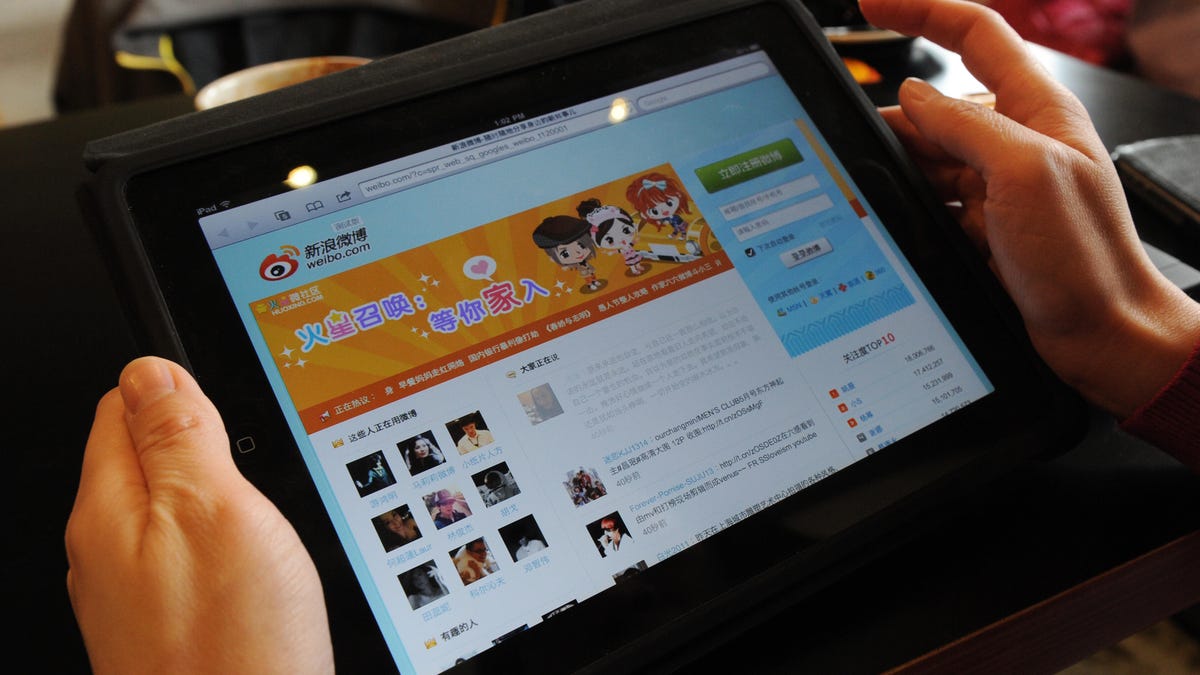China's internet is reaching new levels of crackdown
In one of the world’s most restrictive media environments, tech companies are practicing self-censorship to curry favour with China’s ruling party.

Weibo, a popular Twitter-like service in China, is axing "pornographic, gory and violent" content as part of a three-month purge it is launching on its platform.
China's internet has always been censored by its government, but there now looks to be a new digital era in the country: One where internet giants simply censor themselves.
Last Friday, China's Weibo began a three-month purge on anime, games and short videos depicting "pornography, gore, violence and homosexuality" from its Twitter-like platform. It was that last category, homosexuality, that raised eyebrows in the country -- and in a rare win for freedom of expression, the company agreed to leave homosexual content alone after it drew ire from its community and the ruling Chinese Communist Party over the weekend.
Particularly unusual was China's ruling party denouncing the move. As keyboard warriors raged on Weibo about the company's initial decision to remove homosexual content, with many using the hashtag #IAmGay, the state-run paper People's Daily ran an opinion piece saying homosexuality is "not an illness." Pressure from both sides drove Weibo into backtracking on the removal of homosexual content.
It took a few things to achieve that win, according to Maya Wang, a senior researcher on China at Human Rights Watch. Calling Weibo's latest cleanup a "chilling context against free expression," Wang believes Weibo's cleanup effort was made in anticipation of the government's censorship requirements.
Weibo is just one of several platforms beginning a content purge in order to stay compliant with stricter internet regulations that came into force last June. Asia's biggest tech company, Tencent, is also volunteering a cleanup on content disrupting socialist values, while popular short-video sharing platforms Toutiao and Kuaishou have announced intentions to recruit another 2,000 and 3,000 content reviewers, respectively, adding party members are "preferred."
The trend of self-censorship is growing in the Chinese social media community. And it's not cheap.
"Companies like Sina Weibo and others that also face similar problems recently will find it more difficult and will need to spend more resources to do more meticulous and skillful censorship to please the government," according to Amnesty International researcher Patrick Poon.
Efforts are coming not only from bigger names such as Weibo and WeChat (China's WhatsApp equivalent). Newer platforms that have become popular are feeling the heat too, as apps deemed to be spreading "vulgarity" are seeing themselves shut down by the government this month.
The increased efforts of the aforementioned Vine-esque platforms Toutiao and Kuaishou to police content, in particular, come as Chinese authorities ordered the companies to remove content it deemed "vulgar, violent, gory, pornographic and harmful" from their platforms.
Jinri Toutiao, a new aggregate site under Toutiao, later found itself among four news apps removed from app stores, while Neihan Duanzi, an external producer of "vulgar," with over 4.1 million followers on Toutiao, was shut down. Kuaishou had to remove and bar videos featuring teenage mothers because such content is seen as promoting undesirable values.
"While it seems that the crackdown on vulgarity is in part an effort for greater internet control, the authorities also seem to be genuinely concerned about moral decay in society," said Human Rights Watch's Wang. "Outside the internet, President [Jinping] Xi's government has also cracked down on corruption and implemented the 'social credit system' to impose what the authorities consider as 'good' behaviours."
Internet users have to be very careful about what they say when discussing politics, especially when voicing disagreements.
But the government's online crackdown isn't new. In China, not only do internet platforms have to obtain a license to be able to publish content, rules have been established so internet users are required to register and provide real-name authentication by scanning their identity cards online before they can post anything to cyberspace. Tech companies have had to keep a record of the identities of people posting online under new regulations implemented last October.
The new rules have been criticised as a way for the government to curb public criticism of officials, requiring posts deemed critical of the ruling party and its leadership to be promptly removed. Tencent has also agreed to a government request for it to disable the comments section for new official WeChat accounts.
It's in this environment that people have created code words when discussing politics and expressing displeasure online in order to trick the system. Some popular terms include using Winnie the Pooh to refer to Xi, and insulting the government with "grass mud horse," which sounds like a Chinese curse when spoken.
The crackdown is expected to get even harsher. The victory Chinese internet users scored against Weibo's attempted ban on homosexual content this time may be heartening, but Poon noted that freedom of speech continues to be "very much" restricted.
"People still need to be careful not to cross the obscure red line arbitrarily set by the government," said Poon.
Cambridge Analytica: Everything you need to know about Facebook's data mining scandal.
Blockchain Decoded: CNET looks at the tech powering bitcoin -- and soon, too, a myriad of services that will change your life.

